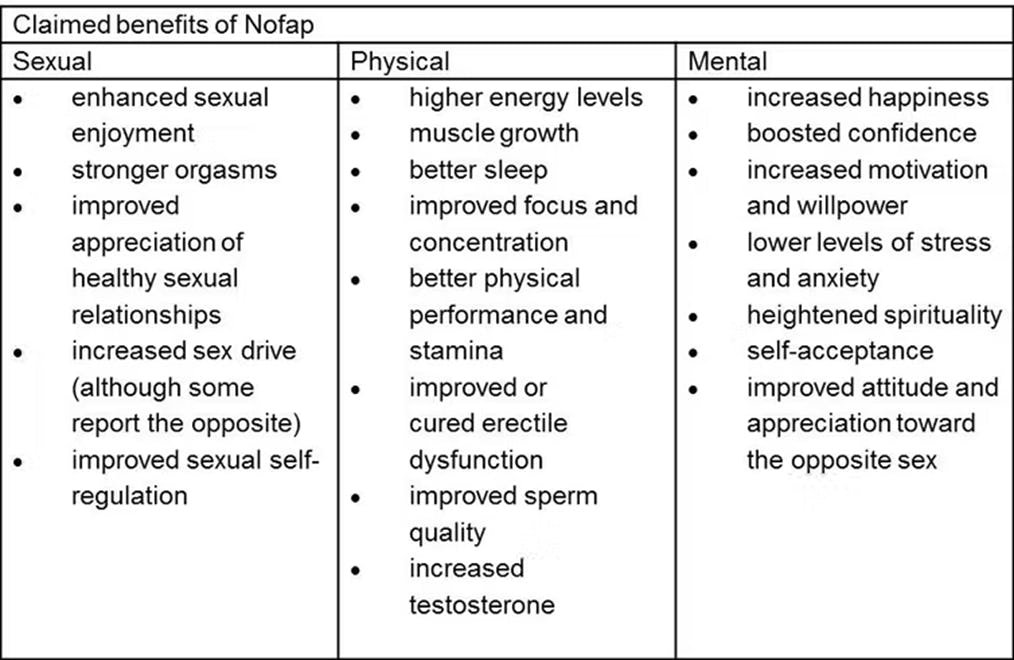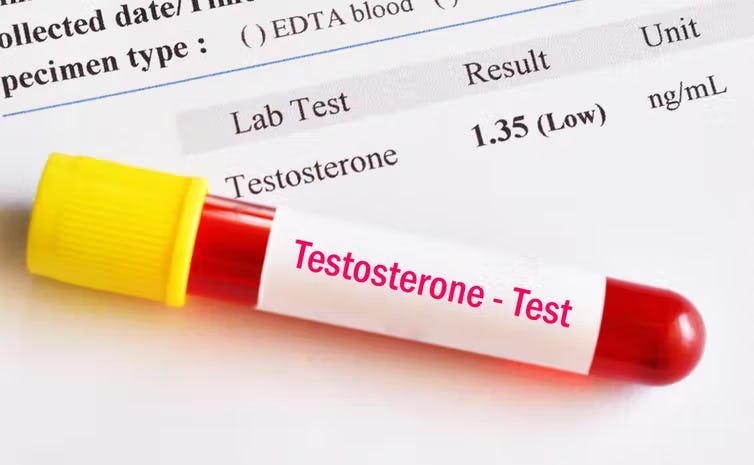
Nofap is a growing online movement devoted to giving up masturbation and even sex for extended periods — typically around 90 days. Starting as a spin-off from a 2011 thread on Reddit, the organization NoFap.com describes itself as a community-centered sexual health platform designed to help people overcome porn addiction and compulsive sexual behavior.
The claimed benefits, however, have now extended the reach of nofap beyond the realms of porn addiction recovery and into mainstream health and lifestyle initiatives. Advocates of nofap are heralding an array of sexual, physical, and mental improvements — including increased testosterone levels. But is there any evidence to back this up?
There are many movements that are similar to nofap, such as semen retention, and they all appear to be predominantly aimed at and practiced by straight men, with only smaller pockets of women and LGBTQIA+ people participating. It has also been taken up by certain far-right and misogynist groups, such as Proud Boys.

Testosterone in men does indeed have profound effects on mood, being demonstrated to improve depression, happiness, and motivation. It is clearly linked to muscle growth and physical performance (that’s why it is a banned supplementary substance in most sporting events). And many aspects of male sexual function are reliant on testosterone. So why wouldn’t we connect the dots between nofap and testosterone?
NoFap and testosterone: The actual evidence
Well, the main reason is the evidence. Two studies keep popping up when evidence is quoted to support the benefits of sexual abstinence as a means to increase testosterone. In the first one, ten men had their testosterone levels measured twice (baseline) before masturbation and orgasm (several tests are more reliable than just one) and then in ten-minute intervals after.
This was followed by a three-week period in which they were instructed to refrain from “any type of sexual activity.” After that period, the process was repeated. Testosterone was reported as being higher in the baseline measurements after abstinence.
Despite the conclusions of the research, the sample size of this study was tiny. And the increase in testosterone may have actually been due to the anticipation of sexual arousal in the second experiment after abstinence. What’s more, testosterone levels at the first baseline measurement were actually the same before and after abstinence, with the second measurement differing slightly. So without more data, it is impossible to really say that abstinence increases testosterone at all.
The second study reported a 45 percent increase in testosterone levels after seven days of abstinence. But this was a temporary peak which then returned to the same levels as before, even with continued abstinence, and stayed that way. Such transient alterations in testosterone levels are unlikely to have any lasting effects on men’s health and may primarily serve as a regulator of the creation of new sperm.
A few studies, on the other hand, have shown either no effect of abstinence on testosterone or that testosterone levels were actually higher after masturbation or sex. Measuring testosterone before and directly after masturbation in 34 healthy young men found that testosterone levels increased after self-stimulation. But any longer-term effects were not checked. At best, the evidence linking masturbation with changes in testosterone levels is limited and with mixed conclusions.

Countering the argument for nofap is the well-documented benefits of sexual activity, including masturbation, on health. The release of endorphins during orgasm leads to positive feelings. Masturbation can help relieve built-up stress and assist relaxation, improve sleep, boost mood, release sexual tension and cramps and even allow a better understanding of sexual wants and needs. And in men, there may even be some possible protection against prostate cancer from regular ejaculation, although this relationship is not fully clear yet.
NoFap and testosterone: Psychological reasons
In fact, masturbation as such doesn’t appear to have any negative effects on sexual and general health, particularly in relation to testosterone levels in men. The problem may lie in excessive masturbation and attitudes towards self-pleasure.
Personal perceptions of masturbation can cause psychological effects that impact testosterone levels. A build-up of anxiety and depression can occur if someone has feelings of guilt following masturbation. This guilt could be based on feeling immoral, such as being unfaithful to a partner or having religious conflicts. A study investigating the motivation for abstinence found that the reason was mostly due to attitudes, specifically the perception of masturbation as unhealthy or wrong.
This stress from prolonged guilt, anxiety, and depression can cause decreases in testosterone levels, and in these situations, abstinence may relieve such feelings and could then theoretically lead to a testosterone increase. Maybe, then, the argument shouldn’t be about changing the tendency or frequency of masturbation but more about improving understanding and attitudes towards sexual behavior.
That said, abstaining from masturbation could help people with destructive porn addictions. Taking a break from pornography, masturbation, or even sex altogether for an extended period of time could help break the cycle or reboot from porn addiction. Beyond this, though, the health benefits of nofap are anecdotal, and evidence to show abstinence even alters testosterone at all is simply not there.
So for anyone embarking on a period of “fapstinence” as a health fad, there is no apparent harm in trying and there might even be perceived improvements in certain aspects of life. But bear in mind that there is no reason to believe that nofap will meaningfully boost your testosterone levels, and you may be missing out on the many benefits of healthy masturbation.
This article was originally published on The Conversation by Daniel Kelly at Sheffield Hallam University. Read the original article here.







